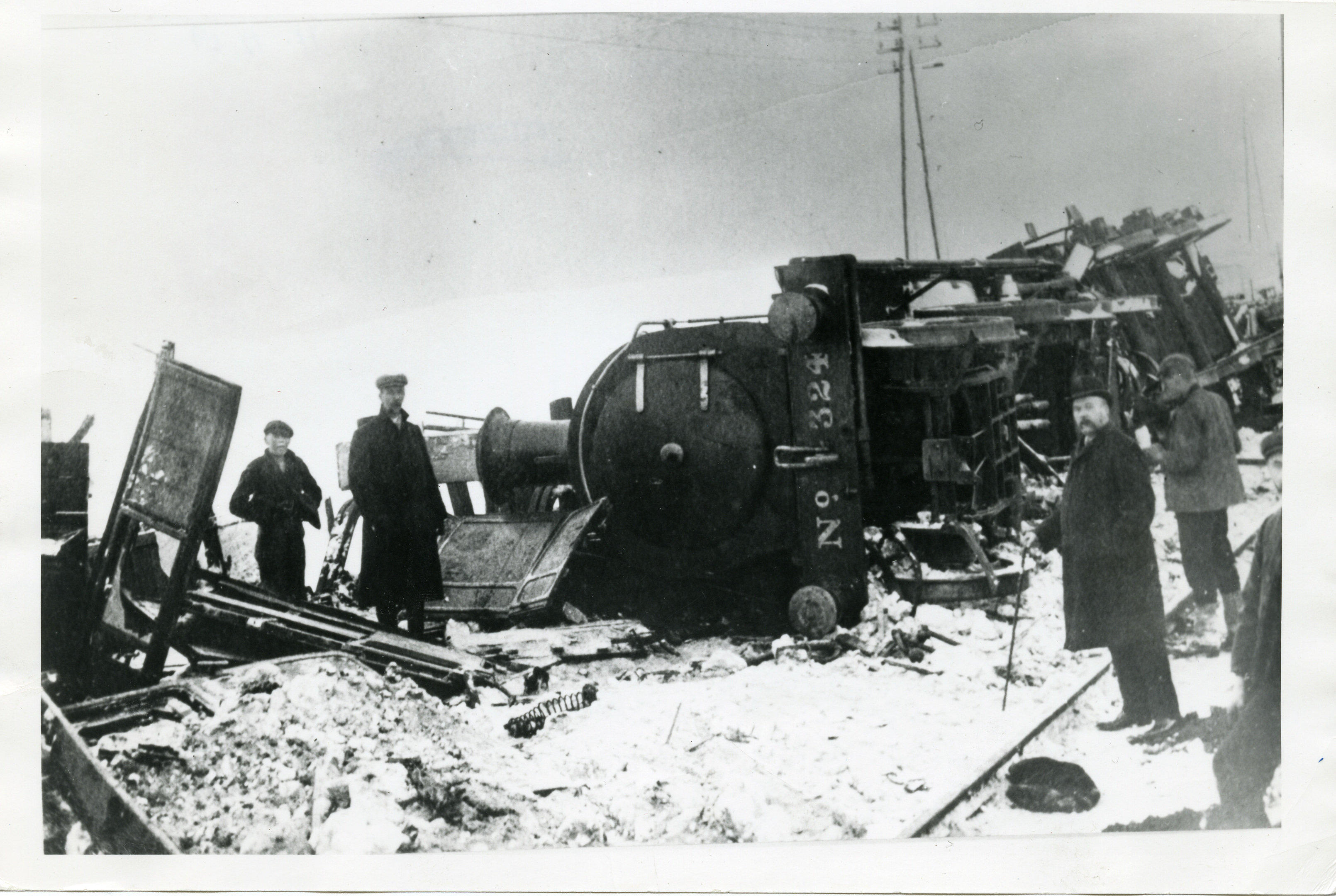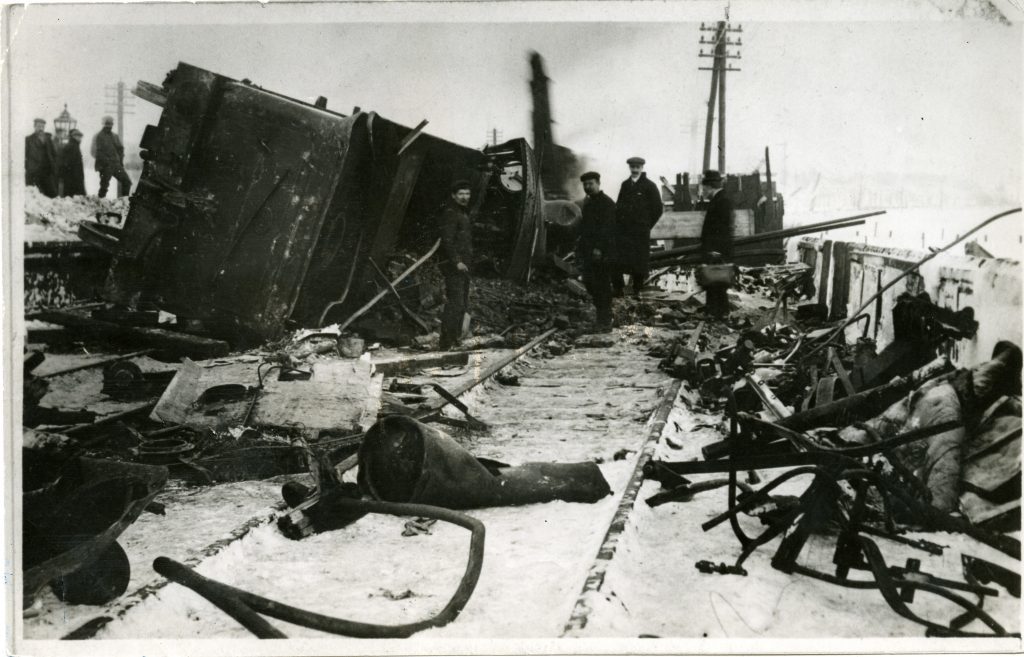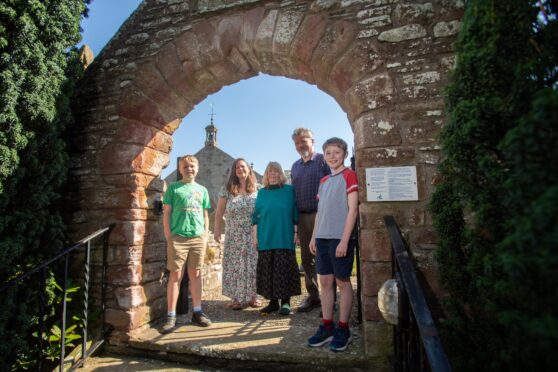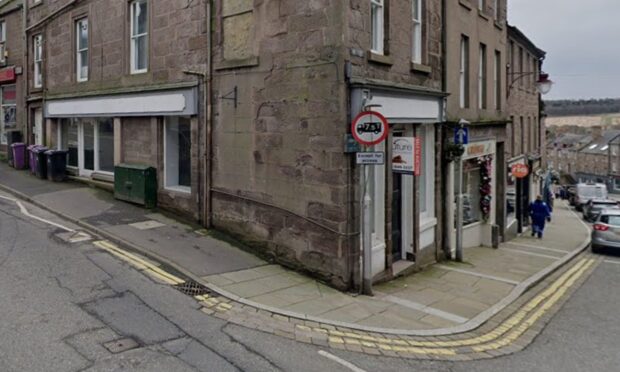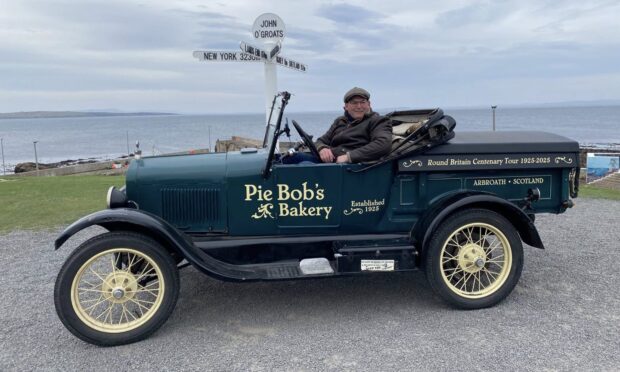He was the Arbroath footballer whose train crash mercy mission during a blizzard cost him his life aged just 32.
David ‘Dev’ Smith Cargill ran from his home in South Street to Elliot junction when word reached the town of a devastating rail disaster.
During his efforts ‘Dev’ was working among ice as well as a boiling hot train which gave him a serious chill and he subsequently died shortly afterwards.
Dev’s great, great nephew Jim Millar has called for a permanent memorial to honour the 22 victims of one of Arbroath’s darkest days.
Jim said: “When my mum passed away last year, I started to look at the family tree, and found an excellent website run by another relative, Grant Cargill, which told the story of Dev Cargill and his role in the event.
“I hadn’t heard of the rail incident before then, so I started to research contemporary reports, and it was only then that I began to appreciate the scale of the accident.
“It is unimaginable to think of the carnage that met those who went to help at the scene, and the recovery would have been extremely challenging given the inclement conditions, especially without the availability of specialist equipment that we take for granted today.
“Survivors and those who involved in the aftermath must have carried the memory of it for the rest of their lives.”
The Edinburgh-bound North British Express careered into the back of a Caledonian Railway local train standing at Elliot in 1906.
Thirteen people were killed instantly on the local train but the death toll increased to 22 with eight injured and the town’s drill hall was used as a temporary mortuary.
One of those injured in the crash was the Liberal Member of Parliament Alexander William Black, who died of his injuries shortly afterward.
“An accident involving two trains, leaving 22 dead and eight injured, is a significant tragedy by any standard, so it is surprising that there is not greater awareness of it,” said Jim.
“There are periodic references on social media, but I think it is fair to say that knowledge of the accident is slipping away.
“Fortunately, major accidents like this are rare, but the impact they have on families and communities is profound.
“I believe a permanent memorial would be an appropriate way to mark the event, and inform people about the tragedy.
“A memorial plaque placed near the site that tells the story of the accident, and highlights the scale and loss of life might be be appropriate, although of course others might prefer another option, such as the addition of a tree planted for each of those who died.
“The disaster is part of the town’s history, and I am sure there are many people who may be unaware of their family connection to it.
“That is why I think it would be good to have a permanent reminder of those who lost their lives, and pay tribute to those who went to assist the victims.”
Victim was star on the pitch
Fisherman Dev made his Arbroath debut against Montrose at Links Park in February 1898.
He played both back and half back and was described as an “invincible tackler” who “regards nothing as impossible”.
Dev played during one of Arbroath’s greatest seasons in 1898-1899 when the club won the Forfarshire Cup and narrowly lost out on the Dewar Shield, which were both big trophies in those days.
The team were drawn through the town to show off the Forfarshire Cup trophy as the people of Arbroath turned out to see the champions.
During this period Dev was wanted by Everton and Dundee but with a new fishing boat on the horizon and longer hours spent at sea he started playing less and less.
Driver was jailed
The disaster happened just after 3pm on Friday, December 28, 1906.
The overturned engine lay on it side, pistons still thrusting in the snow.
Passengers took the initiative that day, tendering to the injured and removing bodies from the train.
The driver of the North British Express, George Gourlay, escaped injury, probably because the tender had been placed in front of the locomotive.
Initially, he was arrested and appeared before a sheriff at Dundee charged with being intoxicated and then released on £300 bail.
But the inquiry also criticised the lack of fog signals at the trackside and poor communications at Elliot.
Gourlay went on trial at the High Court in Edinburgh on March 11, 1907, on a culpable homicide indictment.
There was no mention of the charge of intoxification.
He was found guilty but due to his unblemished character, the weather and lax infrastructure, he was recommended for the upmost leniency and given five months in prison.
